Fellows
Berlin
Francis Baumgartner, Dr. med.

Department of Hematology, Oncology and Cancer Immunology
Campus Benjamin Franklin
Charité - Universitätsmedizin Berlin
Email: francis.baumgartner@charite.de
Project title:
Pathogenesis of ASXL1mutated AML; deciphering mechanisms for novel rational interventions
This project aims to deepen our molecular understanding of ASXL1-mutated (ASXL1mut) acute myeloid leukemia (AML). ASXL1mut frequently occur in myeloid malignancies and, especially in AML, are accompanied by an unfavorable prognosis. By combining Asxl1mut with a genetic system randomly causing mutations, leukemia occurs in mice. After sequencing, Asxl1mut AML are compared to large-scale human ASXL1mut AML datasets, enabling the pinpointing of novel crucial events in leukemogenesis. The most promising identified cancer genes are then (pre)clinically validated for their therapeutic use, e.g., through the development of biomarkers or individualized targeted (combination) therapies.
Mihnea-Paul Dragomir, Dr.
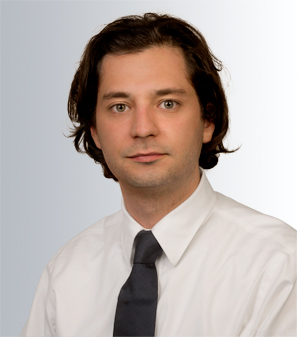
Institute of Pathology, Charité - Universitätsmedizin Berlin
E-Mail: mihnea.dragomir@charite.de
Project Title: Using DNA methylation profiling for differential diagnosis and for determining the origin of ovarian cancers
My research interests lie in classifying, solving differential diagnosis problems, and determining the origin of ovarian cancers. We are using DNA methylation data to develop machine learning algorithms for analyzing ovarian tumors. DNA methylation patterns are highly tissue specific, hence are an ideal method for performing differential diagnosis. Currently, we aim to develop a machine learning classifier that can differentiate subtypes of ovarian carcinomas. Additionally, we aim to use DNA methylation data to predict the outcome of and to subclassify ovarian carcinomas. We plan to expand our research to other female reproductive system tumors.
Felix Ehret, Dr. med.
Department of Radiation Oncology, Charité - Universitätsmedizin Berlin
Email: felix.ehret@charite.de
Project title: The Role of Radiotherapy in the Treatment of Atypical Meningiomas – A Methylome- and Genome-based Analysis.
The role of an adjuvant radiotherapy for grade 2 meningiomas remains unclear. The traditional approach of meningioma diagnosis using only light microscopy and immunohistochemistry to distinguish the current subclasses is prone to interobserver biases and limited regarding personalized treatment decision making. This knowledge gap is highlighted by contradictory findings in various studies. By implementing a DNA-methylation-based classifier and incorporating genetic risk factors to ensure accurate tumor subtype identification, the project aims to specifically assess the role of adjuvant radiotherapy in a homogenous meningioma cohort.
Kerstin Haase, PhD
Functional genomics of paediatric cancers group, Experimental and Clinical Research Center (ECRC) of the Max Delbrück Center (MDC) and Charité Berlin, Germany
Postdoctoral Computational Biologist
E-Mail: kerstin.haase@charite.de
Project Title: Functional relevance of DNA circularization and its contribution to genetic heterogeneity and evolution in childhood solid tumours
My work aims to assess changes in extrachromosomal circular DNA (ecDNA) heterogeneity over time using various cell types and sequencing techniques. Insights from these data will help determine how circular DNA elements are selected for and expressed in the context of enhanced proliferation. Understanding the nature and clinical importance of ecDNA is currently limited by our ability to reconstruct entire circles and genomic fragments contained therein. Hence, my project involves adaption and integration of existing methods, as well as development of new algorithms to reliably quantify and reconstruct ecDNA elements from bulk and single-cell sequencing data at clinically relevant time points.
Stefan Habringer, Dr. med. Dr. med. univ.
Charité – Universitätsmedizin Berlin
Medizinische Klinik mit Schwerpunkt Hämatologie, Onkologie und Tumorimmunologie (CBF)
Hindenburgdamm 30, 12203 Berlin
E-Mail: stefan.habringer@charite.de
Project Title: Identification and Targeting of Novel Target Structures in B Cell Lymphoma
B cell lymphomas (BCL) are genetically heterogeneous diseases, yet standard treatment is still primarily based on chemotherapy and CD20-antibodies, irrespective of molecular alterations. Therefore, targeted treatment strategies exploiting specific vulnerabilities of molecular subtypes are urgently needed. By means of forward-genetic, genome-wide screening using the PiggyBac transposon-transposase system in BCL-prone mouse models we are working on i) the identification of novel oncogenes and tumor suppressors, ii) deciphering mechanisms of lymphomagenesis and therapy resistance and iii) translation of our findings into molecularly-informed, targeted treatment strategies.
Franz J. Hilke, Dr. rer. nat.
Charité Universitaetsmedizin Berlin
Department Dermatology, Venereology and Allergology
AG Molecular Immunology Charité
Head of Experimental Research
Charitéplatz 1, 10117 Berlin
E-Mail: franz.hilke@charite.de
Project Title: Identification and validation of genetic and cellular biomarkers for patient stratification, prognosis and early detection of resistance mechanisms in the context of tumor therapy.
My research interests lie in understanding and deciphering the molecular mechanisms underlying tumorigenesis and cause targeted and/or immune checkpoint inhibitor therapies to fail. Currently, we focus on biobanking for the purpose of comprehensive genomic tumor characterization and the implementation of liquid biopsy. Second, we study immune adverse events, especially in the skin, during immune checkpoint therapy to understand and compare the underlying molecular mechanism to inflammatory and autoimmune diseases of the skin. Third, we are interested in the different compartments of the immune system fighting cancer, particularly the role of the dendritic cells and the killing by granzymB.
Arunima Murgai, Dr rer. nat.
Department of Hematology and Oncology
Charité – Universitätsmedizin Berlin
E-Mail: arunima.murgai@charite.de
Protein ubiquitination is a post-translational modification that leads to proteasomal degradation or altered function of a protein. My project aims to investigate the oncogenic role of deubuquitinating enzymes (DUBs) and their exploitation as drug targets in Acute Myeloid Leukemia (AML). Our preliminary CRISPR screenings for DUB inactivation identified USP7 to be essential for several AML cell lines. A combinatorial approach encompassing proteomic, biochemistry and molecular biology analyses will aim to identify novel the substrates of USP7 which are critical for AML. The results of this project will help to further understand the role of the ubiquitin-proteasome system in the pathogenesis of AML and to identify new therapeutic approaches.
Daniel Nörenberg, Dr. med.
Department for Hematology, Oncology and Tumor Immunology
German Cancer Consortium (DKTK), partner site Berlin
Campus Virchow Clinic, Charité Berlin
E-Mail: daniel.noerenberg@charite.de
Project Title: Genetic Characterization of Primary Mediastinal B cell Lymphoma
Unravelling genetic aberrations underlying PMBL lymphomagenesis has the potential to identify new targets for tailored therapy approaches. A thorough description of the mutational spectrum in PMBL and the identification of key oncogenic drivers will thus facilitate rational therapeutic approaches. Until now, we have collected the world’s largest PMBL cohort (n>400) through national and international collaborations comprising clinically well annotated patients. Using a combination of whole-exome, targeted deep resequencing and gene expression analysis, we aim to identify key oncogenic drivers and deregulated signaling pathways in PMBL. Based on the previous molecular analyses, functional consequences of candidate driver mutations will be analyzed in PMBL cell lines using the CRISPR/Cas technology.
(© Charité – Universitätsmedizin Berlin)
Ana Pestana, Dr.
Deutsches Konsortium für Translationale Krebsforschung (DKTK)
Deutsches Krebsforschungszentrum (DKFZ)
E-Mail: anacristina.afonsecapestana@dkfz-heidelberg.de
Charité –Universitätsmedizin Berlin
Klinik für Radioonkologie und Strahlentherapie
Labor für Strahlenbiologie
Charitéplatz 1, Hufelandweg 9, 10117 Berlin
E-Mail: ana.pestana@charite.de
Project Title: Tracking therapy-driven clonal evolution to understand treatment resistance in head neck cancer
The project has the objective to understand Head and Neck Cancers clonal heterogeneity and its role in resistance to treatment. We will use primary cells derived from patient’s samples or PDX models that will be cultured in 3D conditions (organoids). Through RGB and/or molecular barcoding, each clone composing the tumour bulk will be marked and therefore distinguishable from the others. Taking advantage of this, we will be able to identify the resistant clones and their expression profiles pinpointing what confers them resistance. We believe that this work will allow us to identify possible therapeutic targets for each treatment, and in this way contribute to improve HNSCC treatment options.
Julian Rogasch, Dr. med. MD
Department of Nuclear Medicine
Charité – Universitätsmedizin Berlin
Augustenburger Platz 1, D-13353 Berlin, Germany
E-Mail: julian.rogasch@charite.de
Project Title: Image-derived biomarkers from FDG-PET/CT for staging and prognosis in non-small cell lung cancer
The research aims at improving non-invasive pretherapeutic staging using FDG-PET/CT in patients with non-small cell lung cancer (NSCLC) using image-derived biomarkers (radiomics) and machine learning-based classifiers. A special focus is to improve thoracic lymph node staging. Furthermore, biomarkers are used to develop more differentiated prognostic models to predict patient survival after curatively intended treatment.
(© Charité – Universitätsmedizin Berlin)
Paulina Strzelecka, PhD
Department of Hematology, Oncology, and Tumor Immunology
Charité - Universitätsmedizin Berlin
Augustenburger Platz 1, D-13353 Berlin, Germany
Humboldt Postdoctoral Research Fellow
Email: paulina.strzelecka@charite.de
Project Title: Clonal haematopoiesis of indeterminate potential (CHIP) at single-cell resolution
Clonal haematopoiesis of indeterminate potential (CHIP) is an age-related condition characterized by the presence of somatic mutation(s) in a haematologic cancer-associated gene in a blood of otherwise healthy individuals. In affected individuals, a substantial proportion of mature blood cells is derived from a dominant stem cell that acquired the mutation. My project focuses on the application of single-cell techniques (single-cell transcriptomics and single-cell epigenetics) to decipher the changes in a population of blood cells stemming from the presence of the mutations. The results are expected to reveal how somatic mutations affect cellular programmes in a cell type specific manner.
Dr. med. Siyer Roohani

Department of Radiation Oncology
Charité – Universitätsmedizin Berlin
Augustenburger Platz 1, 13353 Berlin
Email: siyer.roohani@charite.de
Link institutional website
Link Sarkom-Zentrum Charité website
Project title: Breaking Radioresistance of Soft Tissue Sarcomas by New Combination Therapies: Development of a Preclinical Pipeline
Despite their radioresistance and heterogeneity of over 70 subtypes, all soft tissue sarcomas (STS) are treated with the same perioperative radiotherapy regimen. Preclinical and clinical data on effective combination therapies of radiation and targeted compounds is scarce. This proof-of-concept study uses preclinical 3D models of STS to test two hypotheses: 1) Differences in radioresistance among STS subtypes can be reproducibly shown in 3D STS models; 2) New combination therapies of radiation + targeted compounds can overcome radioresistance in STS and be demonstrated in 3D STS models. The study lays the foundation for a preclinical drug and radiation screening platform for STS.
Dresden
Susanne Michen, Dr.
Experimental Neurosurgery/Tumor immunology
Department of Neurosurgery
University Hospital Carl Gustav Carus
Dresden, Germany
Group leader “NK cell-based immunotherapies of malignant neoplasias”
E-Mail: susanne.michen@ukdd.de
Project Title: Development of novel immunotherapies with genetically modified primary NK cells for cancer treatment
We are focusing on NK cell-based immunotherapy of solid tumors, especially brain tumors such as glioblastoma multiforme. NK cells are able to recognize and kill malignant cells with loss of HLA class I expression and concomitant upregulation of stress ligands for activating NK cell receptors. However, most glioma cells express HLA class I molecules and NK cells are additionally blocked by immune-suppressive HLA-E and HLA-G molecules. To overcome this, we generate CAR-modified NK cells directed against various surface-exposed tumor-associated antigens. However, the expansion of these CAR-NK cells to clinically applicable numbers still represents a major hurdle. Therefore, our research focuses on novel methods for selective expansion of CAR-NK cells.
Julien Subburayalu, Dr. med.
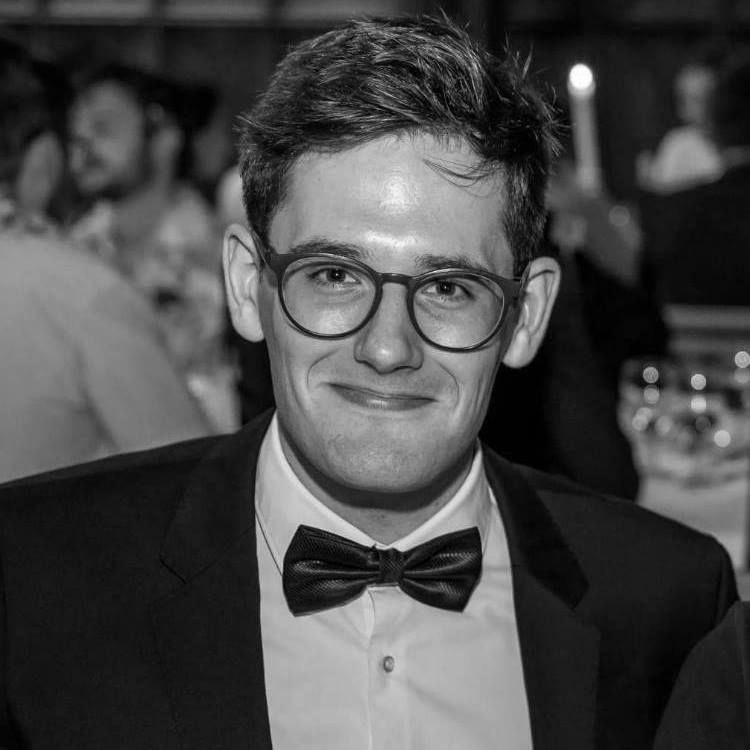
Department of Hematology, Cellular Therapy and Medical Oncology
University Hospital Carl Gustav Carus Dresden, Dresden
E-Mail: julien.subburayalu@ukdd.de
Project title: Characterization of the antitumoral potential of human genome-modified macrophages
Cancer immunotherapy based on macrophages are hindered by a postmitotic phenotype and a proclivity for repolarization by tumor cells. Chimeric antigen receptor (CAR)-bearing macrophages have recently been shown to effectively eat away at tumor cells. Our work shows that genetic modification in the absence of specific CARs in macrophages maintains antitumoral effects which enables applicability in tumors that have no identifiable CAR target.
Our macrophages are denoted by a continuous expansion of terminally differentiated macrophages in vitro, thus potentially enabling cellular therapy. We are committed to delivering a cell therapy product able to outsmart solid tumors even in instances where conventional therapies have failed.
Maximilian Werner, Dr. med.
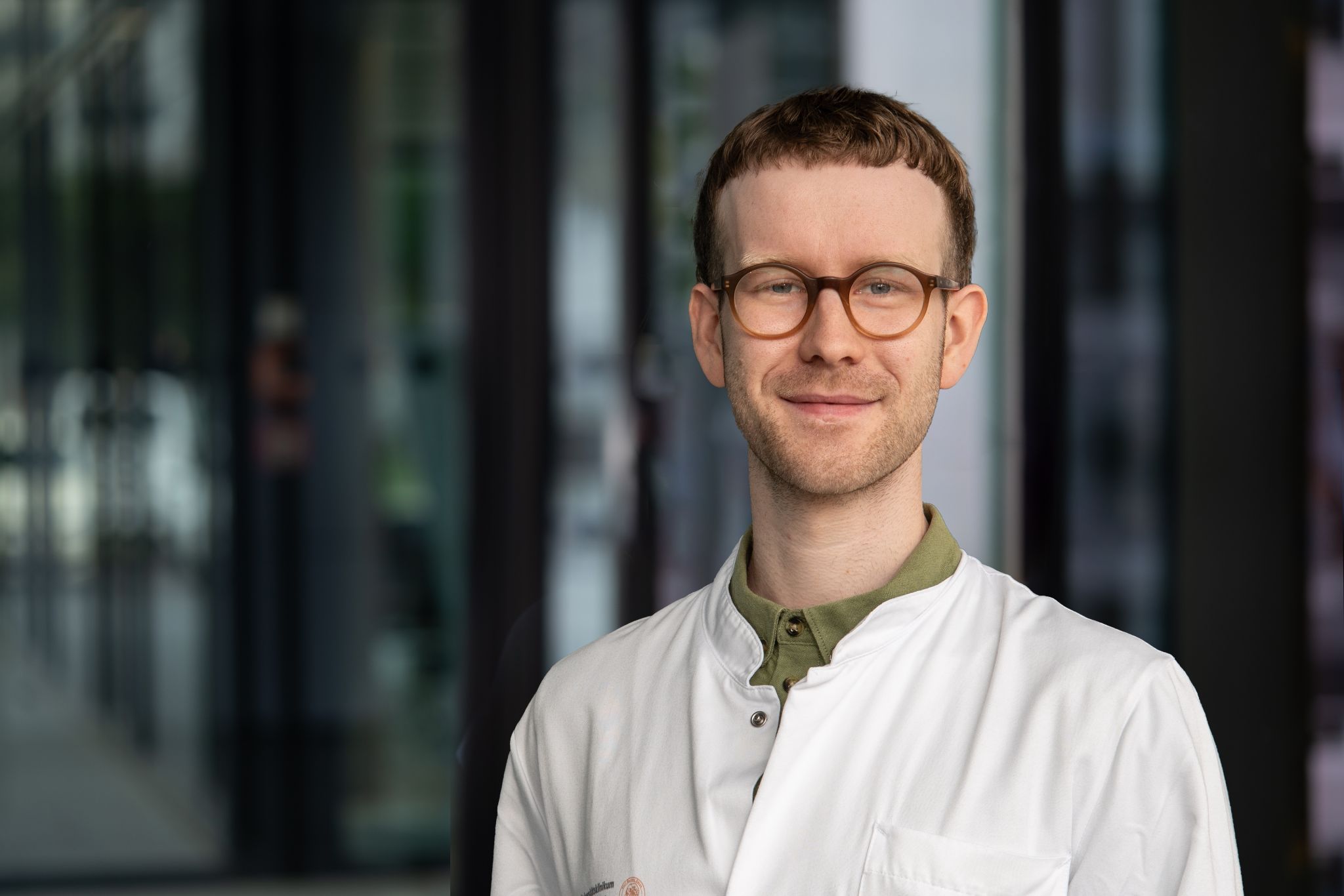
Department of Translational Medical Oncology
National Center for Tumor Diseases (NVT/UCC) Dresden
E-Mail: maximilian.werner@nct-dresden.de
Project title: Multi-omics based precision oncology in cancer of unknown primary
Cancers of Unknown Primary (CUP) are defined by precense of metastases without a detectable primary site after a standardized diagnostic workup. They account for approximately 3-5% of all malignant tumors. The median survival time from diagnosis is three months, highlighting an urgent need for further research.
In a prior study, our research group demonstrated that targeted treatment approaches based on whole genome and transcriptome sequencing can significantly prolong the progression-free survival of affected patients compared to the current standard of care, which is platinum-based chemotherapy (Möhrmann, L., Werner, M., Oleś, M. et al., Nat Commun 2022).
This work is based on data from the NCT/DKTK MASTER program. MASTER is an ongoing, prospective registry trial recruiting patients with rare cancers. The program provides multi-omics characterization leading to molecularly-informed treatment recommendations by a dedicated molecular tumor board.
We now aim to evaluate how further omics layers, such as proteome analysis, can enhance our treatment recommendations and thereby improve the outlook for patients with CUP syndrome.
Essen
Nicole Barwinski, M.Sc.
Department of Human Genetics & Department of Pediatric Hematology and Oncology University Hospital Essen, University of Duisburg-Essen
E-Mail: Nicole.Barwinski@uk-essen.de
Project Title: cf-DNA and EVs as sources for biomarkers for early detection of second primary malignancies in patients with heritable retinoblastoma
Heritable retinoblastoma is a tumour predisposition syndrome caused by heterozygosity for pathogenic RB1 variants. Patients have a high risk to develop a second primary malignancy later in life. Development of such tumours is often initiated by loss of heterozygosity of the RB1 gene. The aim of our project is to develop a noninvasive blood test for the early detection of these secondary cancers. Therefore we investigate cfDNA released by tumour cells to detect the allelic imbalance at the RB1 gene locus. Using the SimSenSeq technology (Ståhlberg et al. 2017) we perform Next-Generation Sequencing to determine the allelic ratio with high sensitivity and specificity to reach the requirements of a diagnostic test.
Celia Dobersalske, M.Sc.

DKFZ-Division Translational Neurooncology at the West German Cancer Center (WTZ)
DKTK partner site Essen/Düsseldorf
Universitätsklinikum Essen
Hufelandstrasse 55, 45147 Essen
E-Mail: c.dobersalske@dkfz.de
Project Title: Tumor microenvironment and resistance mechanisms in malignant glioma
The dynamic and heterogenous cell composition in the tumor microenvironment (TME) actively influences therapeutic efficacy in all different kinds of tumor entities. Our aim is to unravel the insufficiently characterized TME in glioma by establishing models that are acutely maintain the TME of clinical specimen. We firmly believe that understanding and further targeting microenvironmental factors is indispensable to allow the identification of appropriate treatment strategies and to potentially overcome therapy resistance.
Ilektra Mavroeidi, MD
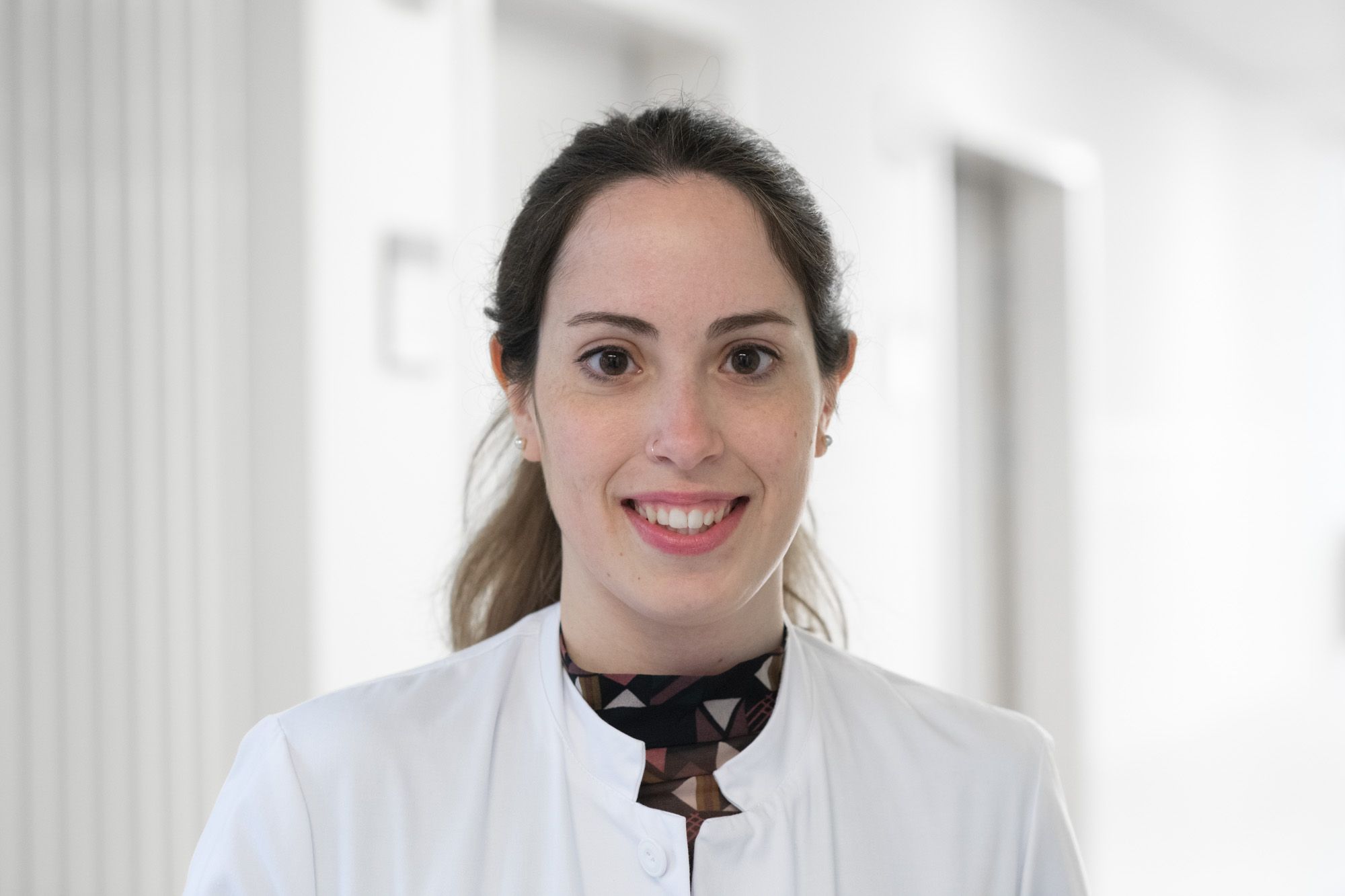
Clinic for Internal Medicine (Tumor Research)
DKTK partner site Essen/Düsseldorf
Essen University Hospital
Hufelandstrasse 55
45147 Essen
E-Mail: ilektraantonia.mavroeidi@uk-essen.de
Project Title: Translational theranostic applications in oncology
Theranostics stands as a cornerstone of personalized medicine, meticulously delving into specific target structures within tumors or their microenvironment to enable both diagnostic and therapeutic interventions. Within this cutting-edge domain, radiotheranostics integrates molecular imaging with targeted radionuclide therapy, offering an opportunity to selectively target and eliminate tumor cells while minimizing adverse effects. This approach holds promise for highly effective therapies with reduced toxicity, addressing concerns related to resistance.
My research primarily focuses on translational theranostic projects in a multidisciplinary and and comprehensive manner. On the one hand, i work on unravelling the intricate dynamics among FAP-expressing cells within tumors, cancer-associated fibroblasts (CAFs), and tumor cells, along with their interactions within the tumor microenvironment. This translational effort initially targets sarcomas, with the aim of extending to other tumor entities. Additionally, I aim to elucidate the role of SSTR2 in SCLC, investigating its correlation with immunohistochemistry and its impact on patient survival, with the utmost purpose of detecting patients eligible for theranostic approaches.
Frankfurt/Mainz
Seyma Alcicek MD, PhD

MSNZ Research Fellow I Medical Scientist
Institute of Neuroradiology
Research Group “Translational Oncology”
University Hospital Frankfurt
E-Mail: seyma.alcicek@kgu.de
Research Focus: Non-invasive Imaging of Tumor Metabolism Using In vivo Magnetic Resonance Spectroscopy
Magnetic resonance spectroscopic imaging (MRSI) is a non-invasive technique that enables in vivo observation of tissue metabolism by exploiting the magnetic properties of cell metabolites. My research focuses on improving this methodology and its postprocessing methods to monitor altered cellular metabolism, the hallmark of cancer. MRSI provides the unique opportunity to collect metabolic fingerprints of tumor manifestations in vivo in patients with the ultimate goal of identifying markers for therapy stratification and monitoring.
Stefanie Deckert, MD

University Medical Center (UMC) of the Johannes Gutenberg University and German Cancer Consortium (DKTK), Partner Site Frankfurt/Mainz, Germany, Institute of Pathology- Research Group Tagscherer/Roth
E-Mail: Stefanie.Deckert@unimedizin-mainz.de
Project Title: Mechanisms of invasiveness and metastasis in colorectal carcinomas - functional relevance of the PEA-15 protein
PEA-15 (phosphoprotein enriched in astrocytes of 15 kDa) is a multifunctional protein containing a classical death effector domain (DED) and two phosphorylation sites at Ser104 and Ser116. It is associated with many fundamental cellular processes like apoptosis, proliferation and migration. Therefore, PEA-15 has been widely investigated in different cancer entities. Although colorectal carcinoma (CRC) is one of most commonly diagnosed cancers worldwide and characterized by a high mortality due to metastasis, the role of PEA-15 in CRC is rarely described. Thus, the aim of this project is to investigate the impact of PEA-15 and its phosphorylation status on migration and invasiveness in CRCs.
Nadezda Dolgikh, Dr.
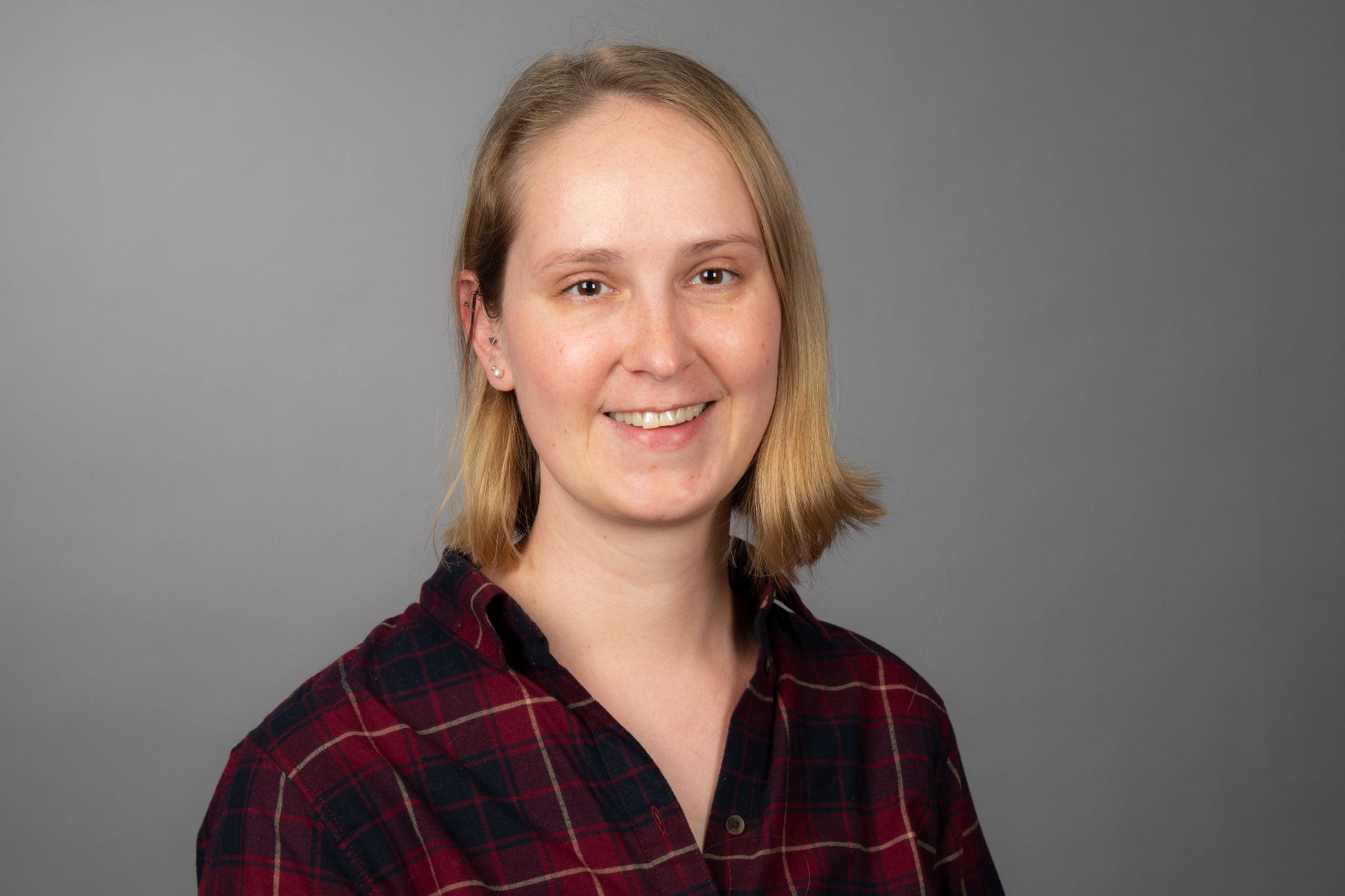
III Medical Clinic and Polyclinic
University Medical Center of Johannes Gutenberg University Mainz
E-Mail: dolgikna@uni-mainz.de
Project Title: Mechanisms of non-genetic resistance to Menin inhibitors in NPM1 mutant AML
The interaction between MLL1 and Menin proteins plays a crucial role in acute myeloid leukemias (AMLs) with MLL translocations (MLLr) or NPM1 mutations. Menin inhibitors disrupt this interaction, leading to reduced expression of leukemic genes and inducing differentiation in MLLr and NPM1mut AML. However, single-drug treatments often face limitations due to the development of drug resistance. To address this issue, we aimed to understand the molecular mechanisms underlying sensitivity and resistance to Menin-MLL1 inhibition in order to provide potential avenues for a promising and novel AML treatment.
Julius Enssle, MD
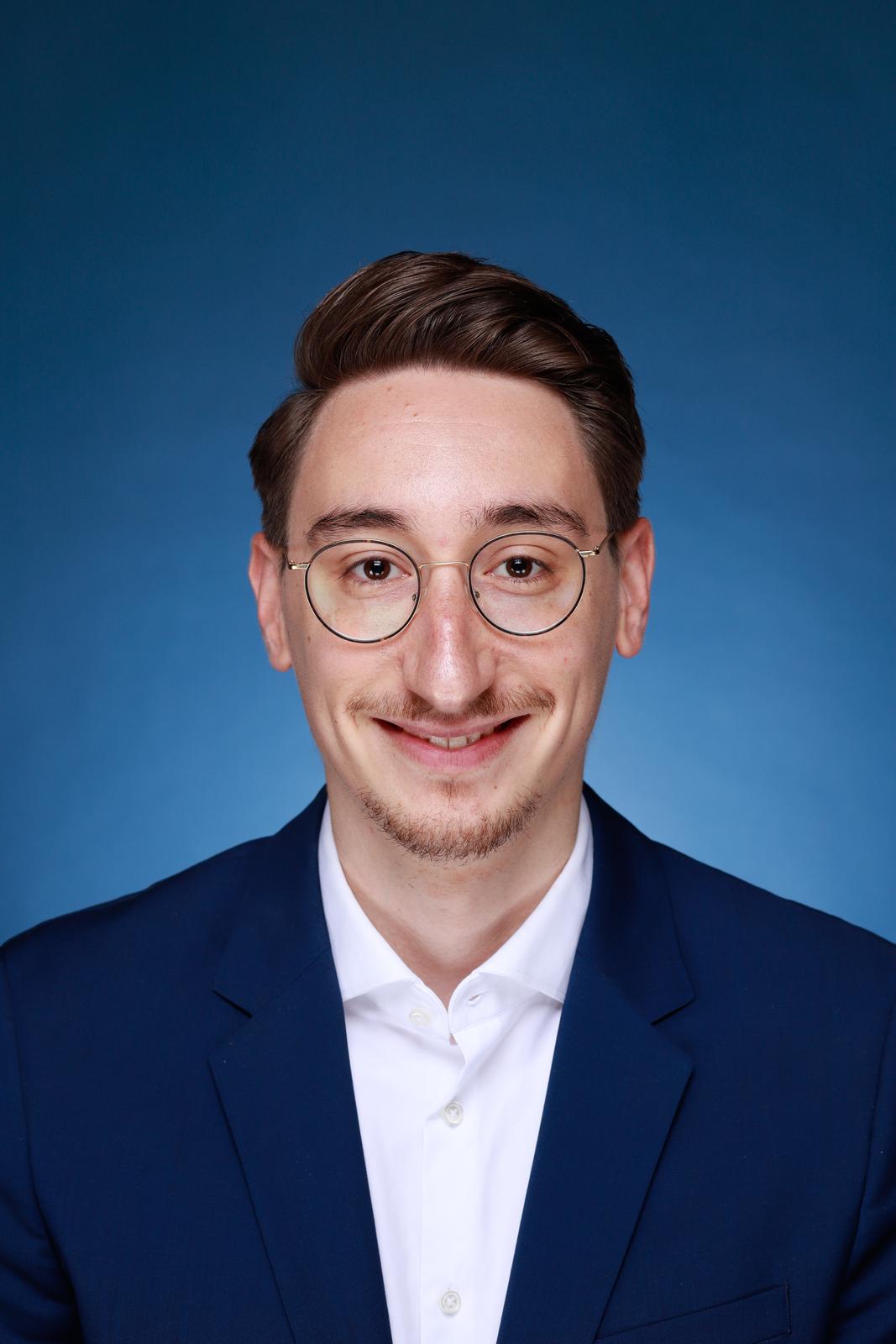
Department of Hematology/Medical Oncology
University Hospital Frankfurt, Germany
E-Mail: julius.enssle@kgu.de
Project Title: Functional proteogenomic characterization of mantle cell lymphoma
Our research aims at expanding the characterization of mantle cell lymphoma (MCL) by mass spectrometry quantitative proteome profiling of primary MCL samples together with whole-exome sequencing, transcriptome sequencing data and clinical outcome data to obtain a multilevel proteogenomic dataset. By bioinformatic integration, we aim at identifying proteogenomic clusters with prognostic relevance and gain insight into the underlying biologic processes. Additionally, analysis of genetic vulnerabilities will allow functional validation of these findings and evaluation of potential biomarkers and novel therapeutic targets to translate the results into novel clinical trials in MCL.
Christian Issing, Dr.
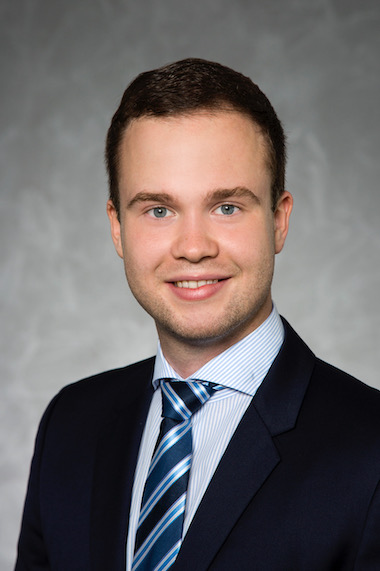
Department of Otorhinolaryngology
University Hospital Frankfurt/Main
Theodor-Stern-Kai 7; Haus 8D, 60590 Frankfurt am Main
E-Mail: christian.issing@kgu.de
Project Title: “Patient-derived tumor organoids from head and neck squamous cell carcinoma as a co-clinical research platform”
Head and neck squamous cell carcinoma (HNSCC) are among the most common malignant neoplasms worldwide. While locally limited disease can be cured by surgery and/or radiochemotherapy, a multimodal and potentially side-effect rich therapy regimen is required for advanced HNSCC. The genetic heterogeneity and distinct aetiologies of HNSCC significantly complicates the therapy and makes an individualized therapeutic approach indispensable for a promising long-term treatment. Patient-derived tumor organoids (PDTOs) could provide a preclinincal model to test treatment responses in vitro.
Élément Christian20Issing.jpg image
Essak Khan, Dr.-Ing.

University Cancer Center (UCT), University Medical Center (UMC) of the Johannes Gutenberg University and German Cancer Consortium (DKTK), Partner Site Frankfurt/Mainz, Germany Center for Thrombosis and Hemostasis (CTH), Institute for Clinical Chemistry and Laboratory Medicine
E-Mail: Essak.Khan@unimedizin-mainz.de
Project Title: Disentangling tumor tissue specific regulatory mechanisms of prothrombin (proF2) gene expression by differential high-content screening in an integrated genetic reporter system
In this project, we are interested in developing a standardized methodology for systematically dissecting the tumor-specific disease entities and mechanism that promote extrahepatic proF2 involved in cancer progression using a transgenic reporter mouse model (Nourse et al., 2021). In a proof of concept, the suitability of this experimental setup to perceive hitherto unknown sources of detrimental extrahepatic proF2 has been confirmed (Nourse et al., 2021) which corresponds to findings from tumor patients (Xue et al., 2010). A broad direct in vivo RNAi screening (Wuestefeld et al., 2013) and counter validation in human patient’s samples is expected to unravel novel insights into disease relevant entities and pave the way for developing new therapeutic concepts.
Florestan Koll, Dr.

Department of Urology
University Hospital Frankfurt
Frankfurt, Germany
E-Mail: Florestanjohannes.koll@kgu.de
Porject Title: Molecular and histological subtyping of muscle-invasive bladder cancer
Muscle-invasive bladder cancer (MIBC) is a heterogeneous disease with poor oncologic outcome. Six different molecular subtypes of bladder cancer have been identified by transcriptomic profiling. These classes differ regarding underlying oncogenic mechanisms, histology and clinical characteristics, including outcomes. But so far, no clinical translation and application of molecular subtypes has occurred. We aim to validate a robust method to define molecular subtypes in MIBC and to correlate these with histological subtypes, response to chemotherapy and survival-rates.
Korbinian Kropp, MD
University Cancer Center (UCT), University Medical Center (UMC) of the Johannes Gutenberg University and German Cancer Consortium (DKTK)
Partner Site Frankfurt/Mainz, Germany Department of Internal Medicine III (Hematology, Oncology, Pneumology)
E-Mail: korbinian.kropp@unimedizin-mainz.de
Project Title: Targeted knock-in of an HLA-independent, TRP2-specific (chimerized) T-cell receptor using CRISPR/Cas9 and homology-directed repair templates.
In this project, we investigate a novel approach to the generation of transgenic T cells based on the genome-editing platform CRISPR/Cas9. Following the methods of Eyquem et al. (Nature 2017, 543:113-117) and Roth et al. (Nature 2018, 559:405-409) we place tumor-reactive TCRs at the endogenous TCR locus thereby knocking out endogenous TCR expression in a one-step knockout/knock-in approach. This enhances expression of transferred TCRs, minimizes mispairing and thus may ultimately improve safety of patients in potential future translational approaches. In particular, we redirect T cells against melanoma by knock-in of an HLA-independent TRP2-specific TCR.
Marius Külp, Dr.
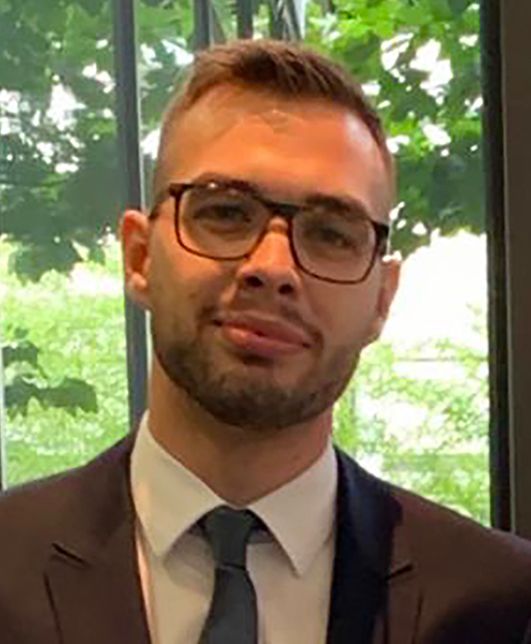
Rieger Lab
Department of Medicine II, Hematology/Oncology
Goethe University Hospital Frankfurt
Email: marius.kuelp@em.uni-frankfurt.de
Project Title: Synonymous mutations driving clonal hematopoiesis in the context of cardiovascular and malignant diseases
Hematopoietic stem cells acquire somatic mutations in distinct driver genes leading to clonal hematopoiesis (CH), a state which frequently fades to hematologic malignancy. Besides, several studies revealed association of CH with chronic heart failure. Importantly, this was only investigated for amino acid-affecting mutations while synonymous mutations have been completely neglected despite their potential to alter RNA folding, stability, splicing or translational speed and pausing. Therefore, the primary objective of the project is the mechanistic elucidation of how synonymous mutations drive CH and subsequently cause cardiovascular and malignant diseases.
Johanna Rausch, Dr. med.

Department of Hematology and Oncology, University Medical Center
Johannes Gutenberg University, Mainz
E-Mail: johrausc@uni-mainz.de
Project Title: Targeting chromatin complexes to reverse AML immune escape for engineered immune cell therapy
Our research focuses on the menin-MLL1 interaction, an epigenetic dependency in NPM1 mutated and MLL-rearranged leukemia. Menin-inhibitors have demonstrated promising in vitro and in vivo activity and are currently investigated in clinical trials. While immunotherapy has revolutionized the treatment of solid tumors and lymphatic neoplasms, it has been far less successful against AML. We are investigating if combining selective targeted epigenetic drugs (including menin-inhibitors) with (cellular) immunotherapy may be a promising strategy to augment the efficacy of immunotherapies in AML.
Viral Shah, Dr. rer. nat.

University Cancer Center (UCT), University Medical Center (UMC) of the Johannes Gutenberg University and German Cancer Consortium (DKTK), Partner Site Frankfurt/Mainz, Germany Department of Internal Medicine III (Hematology, Oncology, Pneumology)
E-Mail: viral.shah@uni-mainz.de
Project Title: Enhancing PARP inhibition mediated DNA Damage and leveraging inherent anti-apoptotic dependencies in acute myeloid leukemia
Acute myeloid leukemia (AML) is characterized by increased proliferation, evasion of apoptotic stimuli, and block of differentiation.In this project, we aim at shedding light on mechanisms involved in maintaining genomic stability, exploring pathways regulating DSB repair and exploit mechanisms that prevent induction of apoptosis in highly proliferating AML cells.
Pia Zeiner, MD
Dr. Senckenberg Institute of Neurooncology
University Hospital Frankfurt/Main
E-Mail: pia.zeiner@kgu.de
Project Title: Interaction between glioma-associated microglia/macrophages and tumor cells in the context of targeted cancer therapies and immunotherapies
Short description: Our research is focusing on the investigation of the immunological response in the microenvironment of brain tumors with a special focus on glioma-associated microglia and macrophages (GAMs). In particular, we assess the influence of established and novel targeted therapies on GAM functions and the potential impact on therapeutic response in glioblastoma patients. One aim of the study is the detailed characterization of the mTOR-signalling cascade as a central regulator and potential therapeutic target in GAMs.
Freiburg
Ann-Christin Eder, PhD
Division of Radiopharmaceutical Development
German Cancer Consortium (DKTK), Partner Site Freiburg
Department of Nuclear Medicine
University Medical Center
Freiburg, Germany
Head of Biotechnological Development and Preclinical Imaging
Project Title: Development and translation of novel theranostic hybrid molecules for pre-, intra-, and postoperative diagnosis and therapy of cancer
Our research is focusing on identifying new biomarkers for the classification of tumors, assessing metastasizing potential and monitoring therapy. In particular my group is working on the development of small molecule peptides with a strong focus on hybrid molecules suitable for preoperative imaging, intraoperative navigation as well as for targeted endoradiotherapy of different cancer types. Therefore, we are using innovative biological, biotechnological and chemical approaches to identify novel peptides to a variety of clinically relevant target structures. Our development pipeline comprises the identification of potential binders, their detailed preclinical characterization including imaging studies finally leading to clinical translation.
Matthias Fahrner, Dr. rer. nat.

Institute for Surgical Pathology
University Medical Center Freiburg
E-Mail: matthias.fahrner@uniklinik-freiburg.de
Project Title: In-depth proteogenomics of solid tumors to expand and complement routine molecular diagnostics and support personalized therapeutical strategies
Proteogenomics describes the integration of proteomics to multi-omics studies that integrate DNARNA-, and protein-level omics-data. In my research I apply in-depth proteogenomics on solid tumors
to address two different aspects:
a) Corroboration of determined sequence variants (DNA or RNA-level) on the proteome level; an approach which may also yield information on the proteomic penetrance of said variants. Results may aid in prioritization of potential treatment schemes if there is co-occurrence of multiple variants with clinical implications.
b) Determine the impact of genomic aberrations on oncogenic signaling pathways; many genomic aberrations are linked to oncogenic signaling and proteomic approaches enable corroborative, direct probing of this impact.
Melanie Föll, Dr. rer. nat.
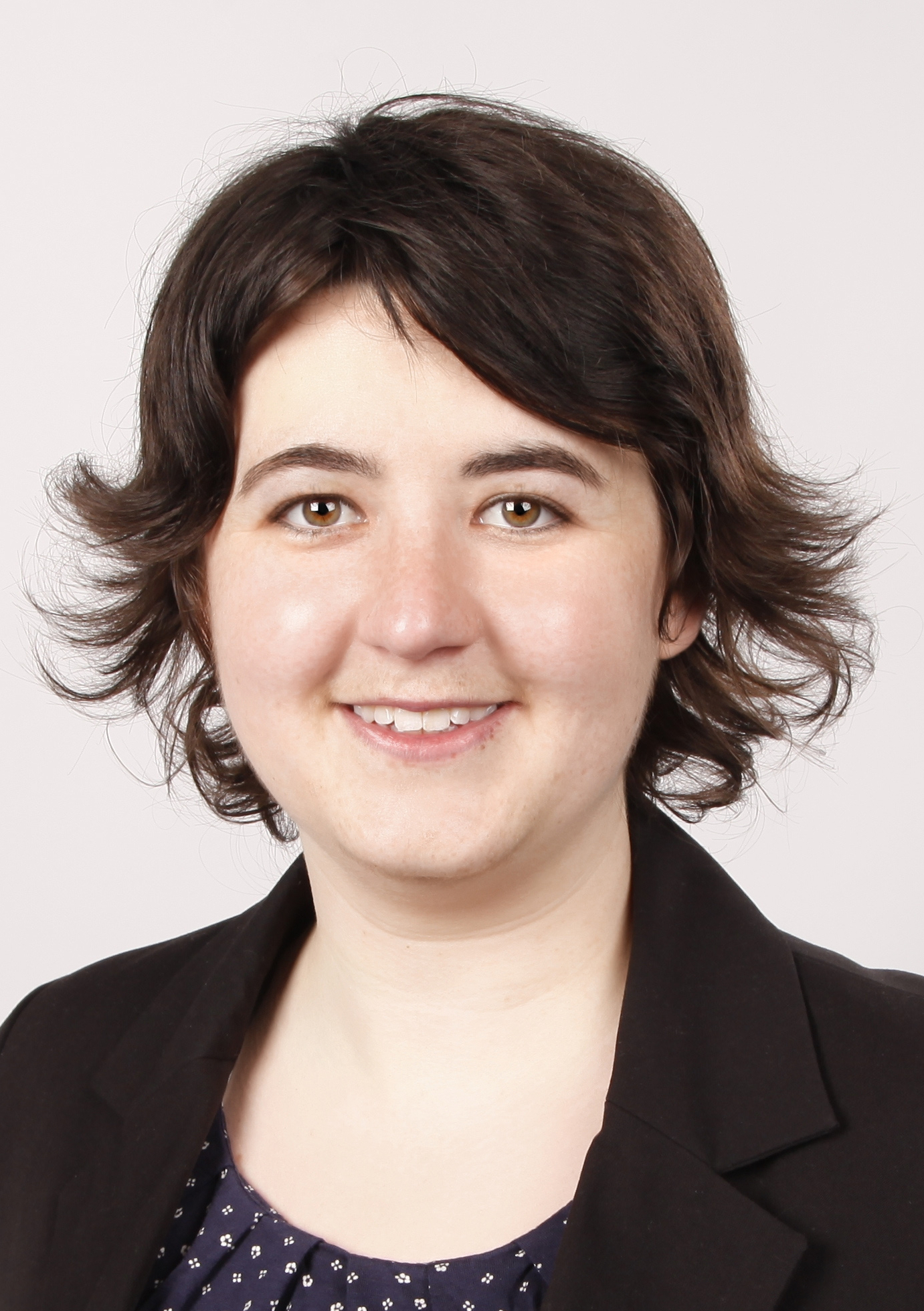
Institute of Surgical Pathology
University Medical Center Freiburg
E-Mail: melanie.foell@uniklinik-freiburg.de
Group Website
Project title: Spatially resolved metabolomics and proteomics of solid tumors
My junior research group “MALDI imaging” investigates tumor tissue cohorts and organotypic tissue slice cultures by MALDI mass spectrometry imaging and complementary omics and imaging modalities. MALDI imaging derives hundreds of molecular distribution maps directly from thin tissue slices. We apply MALDI imaging of metabolites and peptides to investigate spatially resolved tumor biology and to derive spatio-molecular signatures with diagnostic and prognostic potential. Furthermore, we establish open-source analysis tools and workflows in the Galaxy platform and work towards standardization and reproducibility of MALDI imaging, which lays the foundation for future clinical applications.
Avantika Ghosh

Department of Thoracic Surgery – Division of Cancer Research, University
Medical Center Freiburg
German Cancer Consortium (DKTK), Partner Site Freiburg
Breisacher Str. 115, 79106 Freiburg i.Br.
E-Mail: avantika.ghosh@dkfz-heidelberg.de
Project Titel: Systematic analysis of nonstop extension mutations in high throughput
Research in our group has shown that nonstop mutations are associated with cancer and are known to have a functional impact on protein expression and function. Our group has created the database NonStopDB, a comprehensive set of nonstop mutations in human cancer. In this project we aim to systematically analyse the functional impact of all non-stop extension mutations found somatically in human cancer in a pooled format using reporters and next generation sequencing.
Linda Gräßel, MD
Department of Hematology, Oncology, and Stem Cell Transplantation
University Medical Center Freiburg
Project Title: Impact of CD30-mediated immune response in T-cell-lymphomas
The aim of this project is to get a better understanding of CD30-axis in disease progression in ALK-induced T-cell lymphomas with focus on immune response, immune escape mechanisms like immunoediting, involved pathways and other immune evasion mechanisms.
Eileen Haring, Dr. rer. nat.
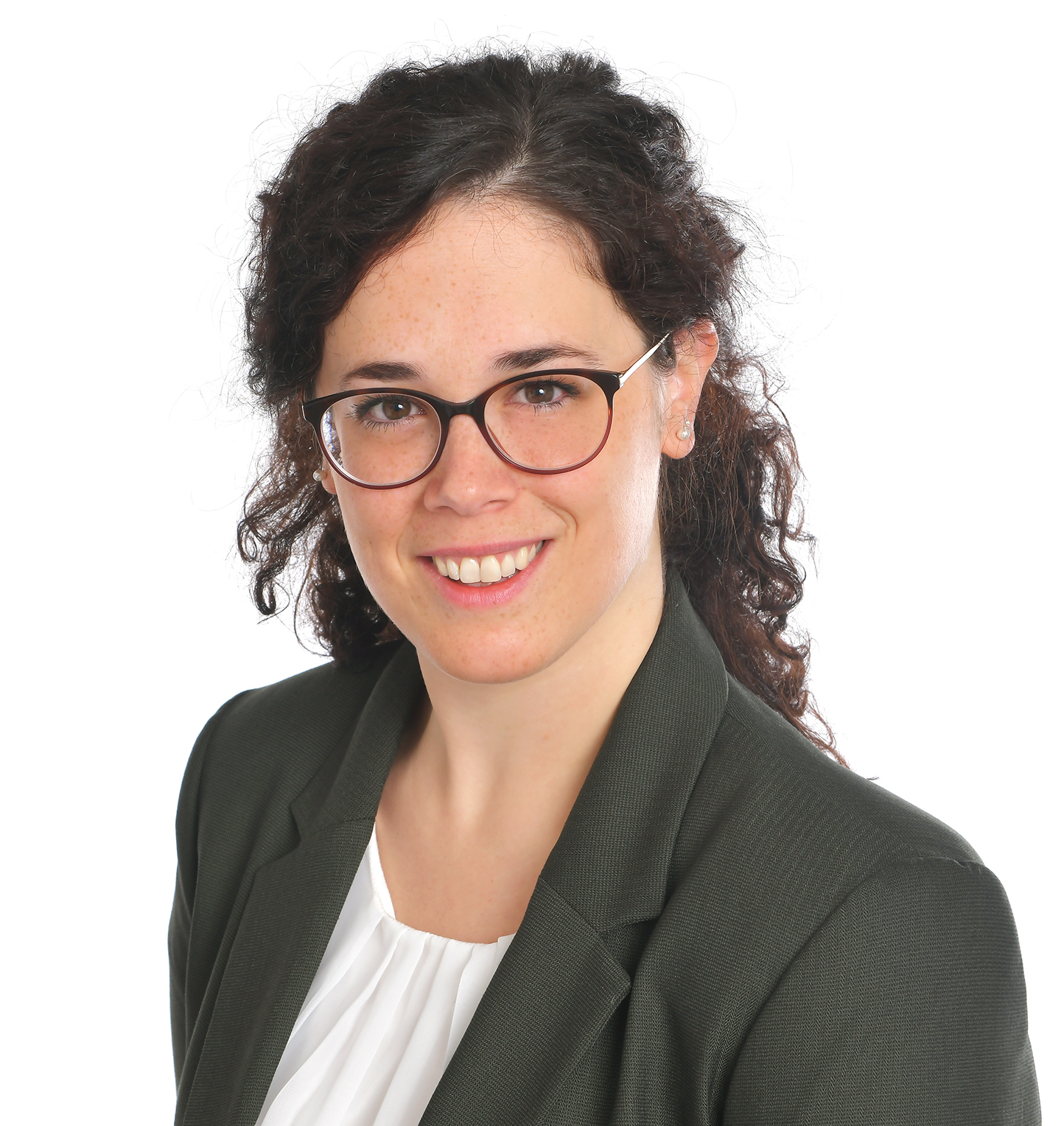
Universitätsklinikum Freiburg
Klinik für Innere Medizin I
Hämatologie, Onkologie und Stammzelltransplantation
Breisacherstr. 155 79106 Freiburg
E-Mail: eileen.haring@dkfz-heidelberg.de
Project Title: Genomic and transcriptomic analysis of leukemia cells and T cells
Acute myeloid leukemia (AML) is the most common type of leukemia in adults and is characterized by a poor outcome. AML can be cured by an allogeneic hematopoietic cell transplantation (allo-HCT). During allo-HCT, the immune system of a donor is transferred into the patient and can eliminate residual malignant cells (graft-versus-leukemia effect, GVL). However, immune escape and relapse are frequent in allo-HCT recipients.
In a currently ongoing clinical trial, we are studying the potential of immunotherapy with an anti-PD-1 antibody as a treatment for AML relapse after allo-HCT. This translational research project focusses on genomic, transcriptomic and phenotypic changes in leukemia and T cells of the patients undergoing immunotherapy. Peripheral blood and bone marrow mononuclear cells will be studied by sequencing technology and high-dimensional flow cytometry. Recognized alterations will be correlated with patient outcome and clinical parameters to identify predictive factors for the response to immunotherapy in allo-HCT recipients.
Lena Hölzen, M.Sc.
Institute of Molecular Medicine and Cell Research, Medical Faculty, Albert-Ludwigs-University Freiburg, D79104 Freiburg, Germany
Faculty of Biology, Albert-Ludwigs-University Freiburg, D79104 Freiburg, Germany
German Cancer Research Center (DKFZ), D69102 Heidelberg, Germany
German Cancer Consortium (DKTK), partner site Freiburg, D79106 Freiburg, Germany
Project Title: Degradome-wide genetic interference screening in murine breast cancer cells
In my PhD-project I am employing a degradome-wide inducible high-throughput genetic RNAi-based protease knockdown screes in two murine breast cancer cells lines to functionally analyze the role of proteases in breast cancer. Furthermore, I am investigating the functional connectivity between proteases and the highly cancer-associated PI3K-pathway using synthetic lethality screens.
Stefanie Kreutmair, MD
Experimental Immunology
University Zürich, Switzerland
Project Title: The immune environment of acute myeloid leukemia
Acute myeloid leukemia (AML) is the most common hematologic malignancy in adults. It is characterized by poor outcome with an overall 5-year-survival of only 50% in young patients and 20% in elderly patients. As the curative potential of allogeneic hematopoietic stem cell transplantation is dependent on immunotherapeutic effects (graft-versus-leukemia effects), immune evasion seems to play a pivotal role in the pathogenesis of AML. A comprehensive research program using highdimensional single cell cytometry combined with bioinformatic analyses represents a powerful tool to gain deep and unbiased insights into the immune signatures of AML patients. Immune patterns that predict response may be integrated into the stratification of AML, particularly in the absence of predictive genetic markers. To verify the impact of the identified signatures, detailed functional analyses of patient mononuclear cells will be performed in vitro to investigate the effect of cell-intrinsic and -extrinsic alterations on anti-AML immunity. The ultimate goal is to identify novel stratifying biomarkers and/or therapeutic targets to overcome immune evasion of AML cells and achieve improved patient outcome.
Ali Caglar Özen, Dr.-Ing.
Department of Radiology and Radiotherapy at the University Medical Center Freiburg
German Cancer Consortium (DKTK), partner site Freiburg
German Cancer Research Center (DKFZ)
Projects: 17O MRI for Regional CMRO2 Mapping; Development of Actively Visualized Devices and Safety of MRI-guided Interventions
MR Imaging with nuclei other than 1H provide additional information about tissue metabolism. MRI with the stable isotope 17O is used to quantify tissue oxygenation e.g. to optimize the treatment strategy in brain tumors. We develop dedicated imaging pulse sequences, novel reconstruction methods and radio frequency hardware to translate 17O MRI to clinical routine.
MRI provides soft tissue contrast superior to x-ray technology and ultrasound. Therefore, MRI-guided operations such as biopsy, therapy, cardiovascular catheterization using active and passive devices such as metallic needles, metallic guidewires, electrodes, and active catheters becoming increasingly popular. We work on increasing the MRI visibility of interventional devices, assess the safety of those devices under MRI, and develop novel methods to investigate and eliminate potential safety risks.
Carla Schmidt, Dr.
Department of Thoracic Surgery – Division of Cancer Research, University Medical Center Freiburg
German Cancer Consortium (DKTK), Partner Site Freiburg
Breisacherstr. 115, 79106 Freiburg i.Br.
E-Mail: carla.schmidt@dkfz-heidelberg.de
Project Title: Discovering non-canonical driver mutations in cancer in high-throughput using endogenous models
Most point mutations found in cancer are functionally uncharacterized and hence cannot be exploited for patient stratification and therapy decisions. Current approaches to study mutations endogenously are time-consuming and lack the possibility for high-throughput. In this project, we focus on the introduction of comprehensive libraries of targeted mutations endogenously into the cell genome using innovative CRISPR-derived tools to assess their functional impact and their impact on therapy response and resistance.
Ella Levit Zerdoun, PhD
Institut für Medizinische Bioinformatik und Systemmedizin
Medizinische Fakultät, Albert-Ludwigs-Universität Freiburg
Arbeitsgruppe Boerries für Systembiologie und Systemmedizin am DKFZ Partnerstandort Freiburg - DKTK
Institut für Molekulare Medizin und Zellforschung, Albert-Ludwigs-Universität Freiburg
Project Title: Genotypic and phenotypic characterization of patient-derived melanoma cell lines
Based on a transcriptome analysis, the aim of this project is to characterize the phenotypic properties of the four individual malignant melanoma cell lines, such as cell survival, proliferation, migration, and invasion. Furthermore, we are studying the underlying mechanisms, which effectuate the phenotype of the melanoma cell lines. Therein, we mainly focus on the MAPK/ERK or PI3K pathways, components of which are frequently mutated and thus are often constitutively active in cancer cells, driving their development and enhanced survival.
Project Title: Identification of early detection markers in pancreatic ductal adenocarcinoma (PDAC)
The aim of this project is to establish an early genetic classifier of PDAC based on a meta-analysis of independent studies. In combination with system biology and bioinformatics approaches, it is our aim to identify early markers of PDAC in patient-derived samples (eg. liquid biopsies). This may allow the differentiation of PDAC from early pancreatic intraepithelial neoplasia (PanIN), pancreatitis, and healthy tissues. In a parallel approach, we seek to inactivate the classifier genes in established PDAC cell lines and to assess the effects of the inactivation on the functionality of these cells.
Heidelberg
Fabian Allmendinger, Msc.

Department of Radiation Oncology, University Hospital Heidelberg
E-mail: fabian.allmendinger@med.uni-heidelberg.de
Project title: Preclinical model organisms to predict personalized radiation treatment for central nervous system cancer
Patient-derived in vitro models present a promising platform to predict the efficacy of different radiation modalities, including types and dosages, thus promoting personalized treatment planning in radiation oncology. Our aim is to tailor radiation treatment to the preserved tumor biology of individual patients, making it amenable to in-depth analyses. This approach may improve our molecular understanding of how radiation affects brain cancer cells through a comprehensive multi-omic approach and ultimately improve radiation effectiveness while mitigating side effects by optimizing radiation protocols.
Maximilian Deng, Dr. med.

Department of Radiation Oncology, University Hospital Heidelberg
Heidelberg Institute of Radiation Oncology (HIRO)
Heidelberg, Germany
E-Mail: Maximilian.deng@med.uni-heidelberg.de
Twitter: @maxiydeng1994
Project title: Molecularly-guided precision radiotherapy in patients with central nervous system tumors
The 2021 update of the WHO classification of central nervous system tumors has integrated comprehensive molecular findings into the diagnostic workflow, enabling a more accurate diagnostic process and risk assessment. Novel radiotherapeutic modalities using protons or carbon ions represent an auspicious therapeutic concept with an increased accuracy in dose delivery - while reducing the radiation dose for the surrounding organs at risk. Post-hoc integrated molecular-morphological scoring will identify patients at risk of progression, where proton- or carbon ion radiotherapy may be particularly beneficial, facilitating the path to a molecularly-guided treatment in patients with brain tumors.
Niklas Graßl, Dr. med.

Department of Neurology, University Medical Center Mannheim, Heidelberg University
CCU Neuroimmunology and Brain Tumor Immunology (Prof. Dr. Michael Platten), German Cancer Research Center
Heidelberg, Germany
E-Mail: niklas.grassl@dkfz-heidelberg.de
Project title: Neural stem cell ablation and gliomagenesis – towards a more natural glioma model in mice
Early evolution of primary central nervous system tumors is incompletely understood. In this research project I develop a mouse model that aims to fuel giomagenesis by an ablation of neural stem cells. Thus I hope to recapitulate the natural disease course more accurately with implications for our understanding of gliomagenesis and testing of therapies for CNS tumors.
Antonia Schubert, MD
National Center for Tumor Diseases (NCT)
Department of Medical Oncology and German Cancer Research Center (DKFZ)
Signaling and Functional Genomics (Prof. Dr. Michael Boutros)
Heidelberg, Germany
E-Mail: a.schubert@dkfz.de
Twitter @_A_Schubert
Project Title: Novel strategies to analyze the role of Wnt-signaling in cancer
Deciphering the crosstalk of tumor cells and their surrounding stroma during cancer progression and metastasis is of highest importance to further optimize therapeutic strategies and prevent late recurrence. Wnt signaling governs cell faith and tissue polarity during development and aging. It was found dysregulated in various pathological processes and diseases such as cancer. This project aims to get further mechanistic insights into the complex Wnt-signaling networks using genome engineering and advanced imaging techniques that could lead to the identification of targets for earlier diagnostics and therapeutic intervention.
Roberto Würth, PhD
Division of Stem Cells and Cancer (A010, Prof. Andreas Trumpp)
German Cancer Research Center (DKFZ)
Foundation under Public Law
Im Neuenheimer Feld 280, 69120 Heidelberg
E-Mail: r.wuerth@dkfz.de
https://www.dkfz.de/en/stammzellen-und-krebs/mitarbeiter.html
https://www.researchgate.net/profile/Roberto_Wuerth
https://www.linkedin.com/in/wuerth/
ORCID: 0000-0002-8156-6756
Project Title: A liquid biopsies platform to study metastasis and to reveal individualized resistance mechanisms in breast cancer patient
Munich
Vanessa Arfelli, Dr.
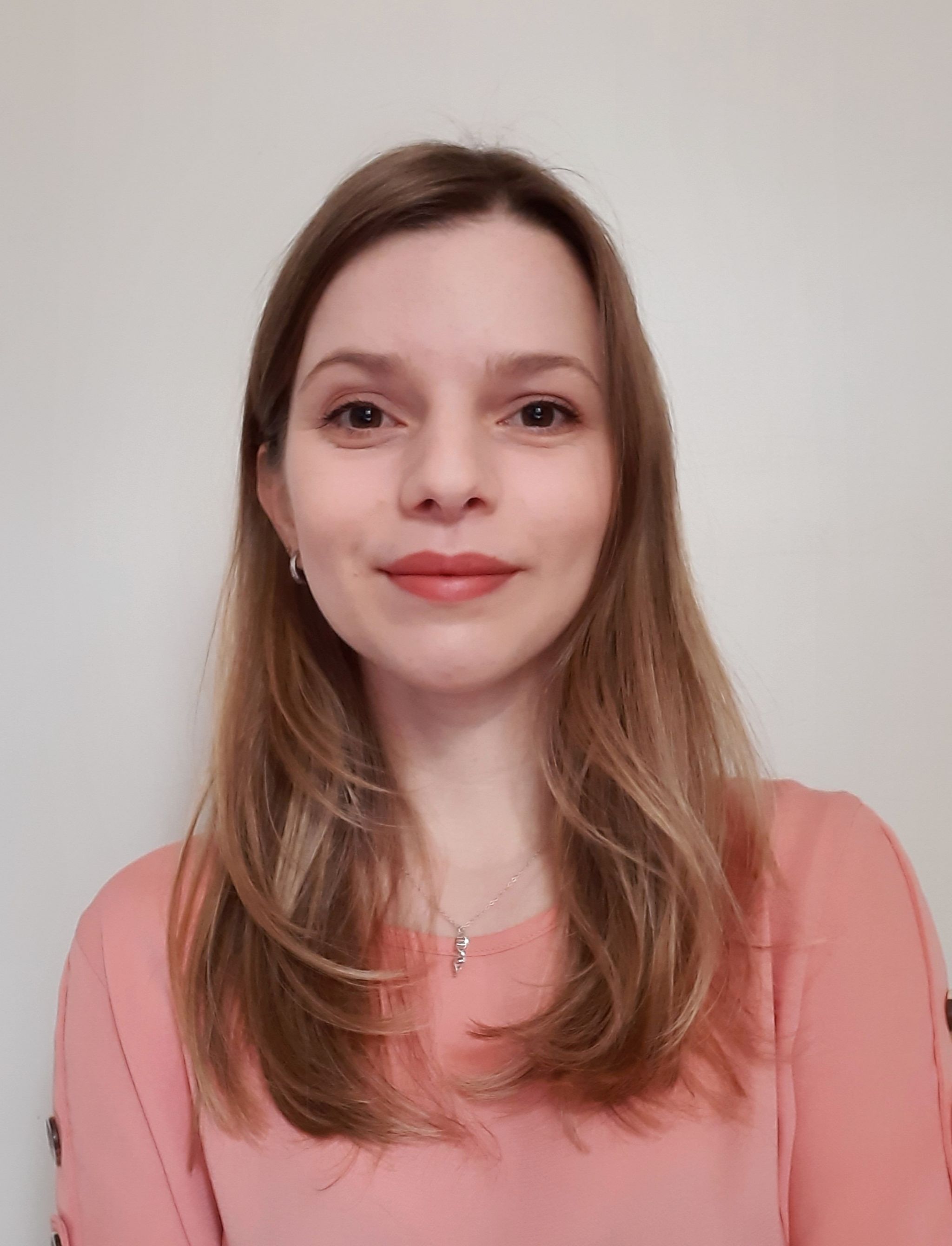
Experimentelle Leukämie- und Lymphom-Forschung (ELLF), Medizinische Klinik und Poliklinik III, Klinikum der Universität München, Munich
Pathogenesis of acute leukemia - AG Prof. Dr. med. Philipp Greif
Medizinische Klinik und Poliklinik III | Arbeitsgruppen (lmu-klinikum.de)
Email: Vanessa.Arfelli@med.uni-muenchen.de
Project Title: Alterations of fatty acid metabolism and pharmacological counteraction in ZBTB7A deficient leukemia
ZBTB7A is a transcription factor frequently mutated in acute myeloid leukemia (AML) patients with t(8;21) translocation (which results in the RUNX1-RUNX1T1 fusion protein). We use CRISPR-Cas9 to knockout ZBTB7A and mimic these loss-of-function mutations in order to study ZBTB7A effect in metabolism. Our ultimate goal is to find metabolic drug targets for therapy. For that, we perform metabolic tracing by mass spec, metabolic flux assays, and treatment with several metabolic inhibitors. Besides, since ZBTB7A prevents RUNX1-RUNX1T1-mediated clonal expansion in vitro, we are interested in investigating the cooperation of ZBTB7A knockout and RUNX1-RUNX1T1 during leukemogenesis in a mouse model.
Melissa Barroux, Dr. med.

Department of Gastroenterology, Technical University Hospital, Munich
E-Mail: Melissa.Barroux@mri.tum.de
Project Title: Tumour evolution and immune microenvironment dynamics in response to neoadjuvant treatment in oesophagael adenocarcinoma
Patients with locally advanced oesophageal cancer (OAC) are treated with surgical resection and neoadjuvant chemotherapy or radiochemotherapy. However, 50% to 60% of tumours are resistant to neoadjuvant therapy, leading to an overall poor outcome with a 5-year survival of 12.6%. The ecological and evolutionary dynamics responsible for treatment failure are incompletely understood. In my research I perform a multi-omics study (whole exome sequencing, RNA-sequencing, T-cell receptor sequencing and image mass cytometry) with a multi-timepoint strategy to examine treatment response at clonal resolution and to investigate genetic and transcriptomic changes induced by neoadjuvant therapy in OAC patients. This project will provide fundamental insights into clonal dynamics, transcriptomic changes and dynamics of the microenvironment in response to neoadjuvant treatment in OAC patients, in order to provide fundamental insights into treatment response on the molecular level.
Maximilian Funk, Dr. med. univ.

Department of Internal Medicine III
LMU Klinikum
Cancer- and Immunometabolism Research Group (CIM)
Genzentrum LMU
E-Mail: maximilian.funk@med.uni-muenchen.de
Project title: Metabolic features of high-risk multiple myeloma
The risk of progression and the response to therapy in multiple myeloma are determined by genomic risk factors including deletion of the tumor suppressor p53. Importantly, p53 is known to profoundly impact cellular metabolism. In our project, we will characterize the metabolic landscape of high-risk myeloma in cell line models and primary patient samples through metabolomic analyzes. We furthermore aim to identify underlying mechanisms and metabolite mediated effects on the tumor environment by employing transcriptomic technologies and functional assays. Ultimately our goal is to identify resistance mechanisms to established drugs and to discover novel therapeutic targets in multiple myeloma.
Dr. med. Hendrik Gaßmann, Dr. med., PhD
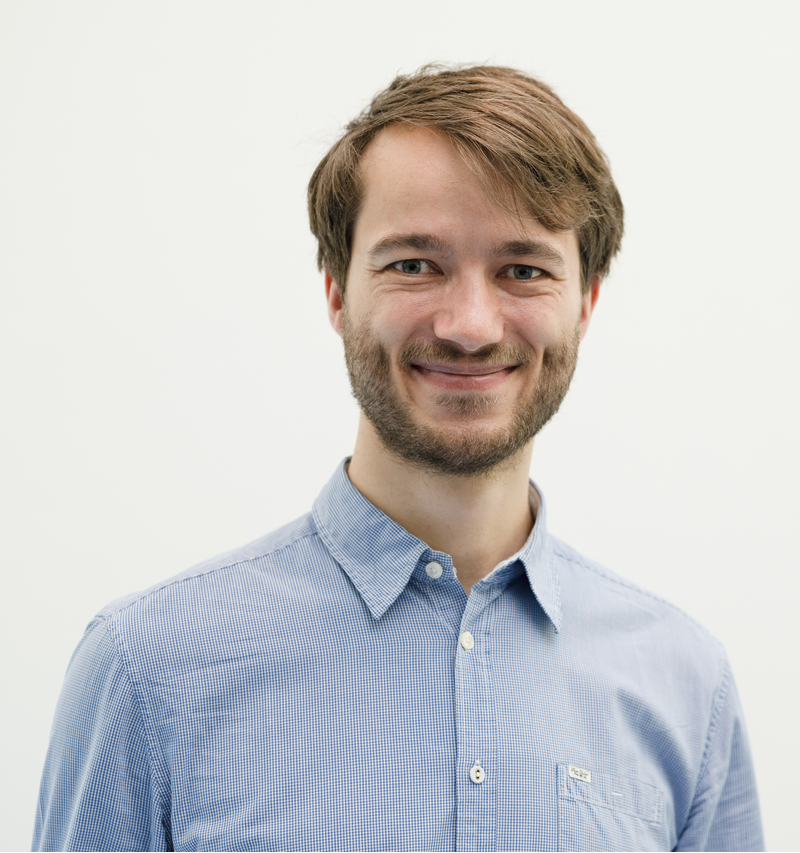
Kinderklinik München Schwabing
- Klinik und Poliklinik für Kinder- und Jugendmedizin, Klinikum Schwabing, München Klinik gGmbH und Klinikum Rechts der Isar (AöR) der Technischen Universität München -
Phone: 089/3068 2367
Email: hendrik.gassmann@tum.de
Project Title: Identification of tumor-antigen specific T cell receptors for the treatment of
pediatric cancers.
Despite significant survival improvements, cancer ranges among the leading causes of deaths in children and young adults. Immunotherapy including adoptive T cell transfer emerges as promising therapeutic strategy in pediatric hematological and solid malignancies.
The short- and mid-term goals of the project are to identify and characterize T cell receptors (TCRs) in vitro and in preclinical models targeting overexpressed and shared antigens in pediatric cancers. The aim is to provide data for efficacy and safety of selected TCRs for further evaluation in phase I clinical trials.
Adrian Gottschild, Dr. med.

LMU Klinikum
Arbeitsgruppe Immunpharmakologie
Abteilung für Klinische Pharmakologie
Medizinische Klinik und Poliklinik III
E-Mail: adrian.Gottschlich@med.uni-muenchen.de
Project Title: Spatial transcriptomic-based dissection of tumor-infiltrating
lymphocytes (TIL) for the improvement of immunotherapies and cellular therapies in pancreatic cancer
The field of artificial intelligence is rapidly expanding, providing novel insights into tumor biology. Single-cell RNA-sequencing (scRNA-Seq) for example can provide information of cell-to-cell interactions at an unforeseen resolution. However, one fundamental limitation of scRNA-seq is the loss of spatial information, which is known to influence prognosis and treatment response of certain cancers. Building on our previous successful investigations, we hypothesize that we can leverage spatially-resolved gene expression profiling to identify pivotal signaling pathways in tumor-infiltrating lymphocytes (TIL) and exploit these pathways for engineering of next-generation cellular therapies.
William Keay, Dr.
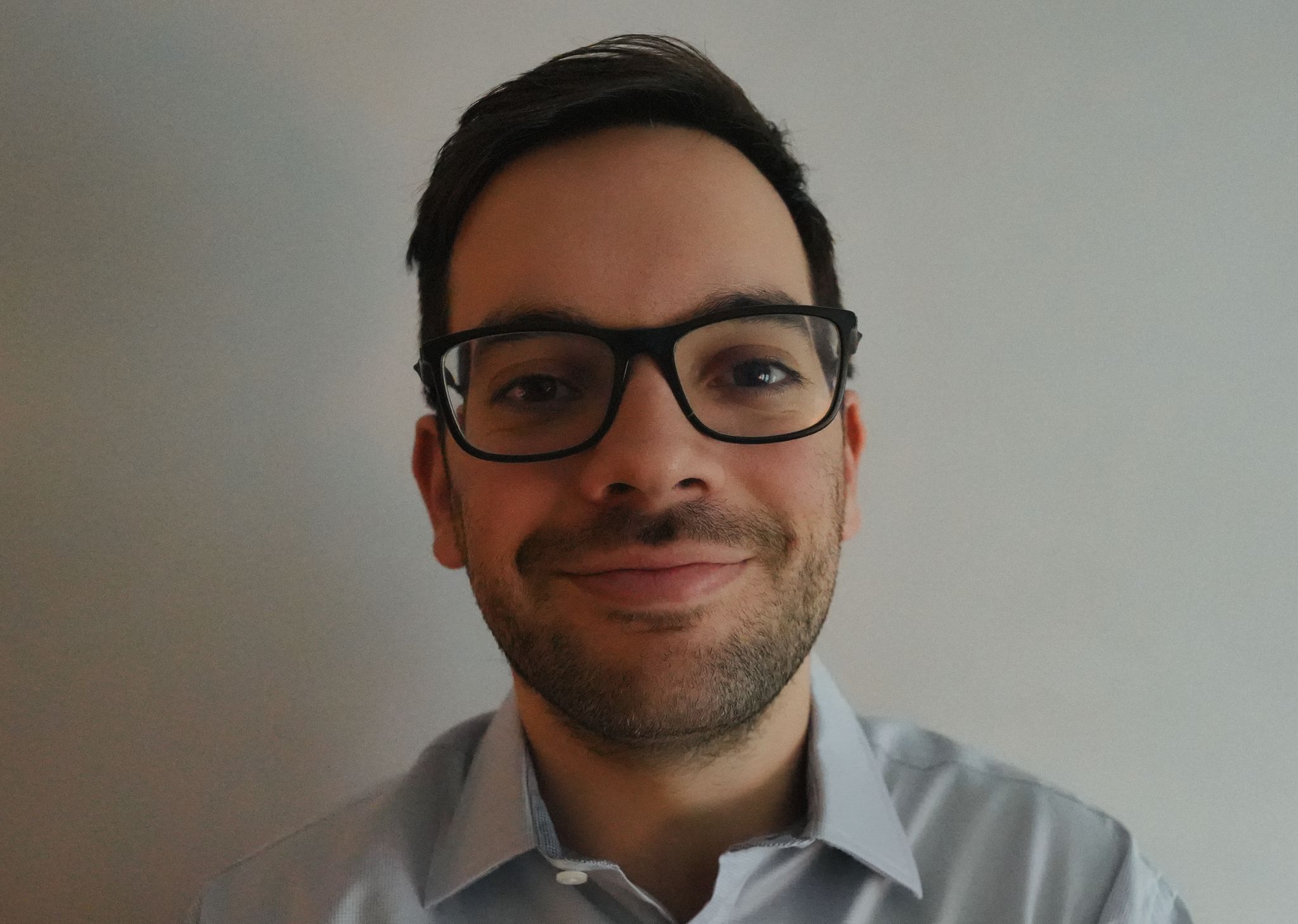
Klinikum der Universität München, Munich
Experimentelle Leukämie- und Lymphom-Forschung (ELLF), Medizinische Klinik und Poliklinik III
E-Mail: William.Keay@med.uni-muenchen.de
Project title: Functional characterization of recurrent co-occurring gene mutations in follicular lymphoma (FL)
My project focuses on studying co-occurring mutations in FL, using an innovative, fully human ex vivo model system of primary, genetically editable FL-like germinal center B cells. We study different mutations including epigenetic modifiers in the context of autologous immune cells in an organoid-like setting. We hope to gain insights in the heterogenous biology of FL, allowing us to pinpoint altered cellular signalling cascades that can be therapeutically targeted.
Mathilda Marie Knoblauch, Dr. med.

Surgical resident at the Department of the Allgemein-, Viszeral- und Transplantationschirurgie
Ludwigs-Maximilians-University Munich
E-Mail: Mathilda.Knoblauch@med.uni-muenchen.de
Project Title: The effect of catecholamines and ß-ARs on the invasiveness of colorectal cancer cell
Tumor cell migration and invasion are multifactorially conditioned and the cause for metastasis development. Currently, it is poorly understood how and when cancer cells cross the endothelial barrier and proceed to metastasis. I focus on the aspect of the nervous system on several gastrointestinal and mesenchymal solid tumor entities in vitro and in vivo. My work deals with the influence of the nervous system in colorectal cancer metastasis and possible mechanisms in metastatic organotropism.
Enric Redondo Monte, Dr.
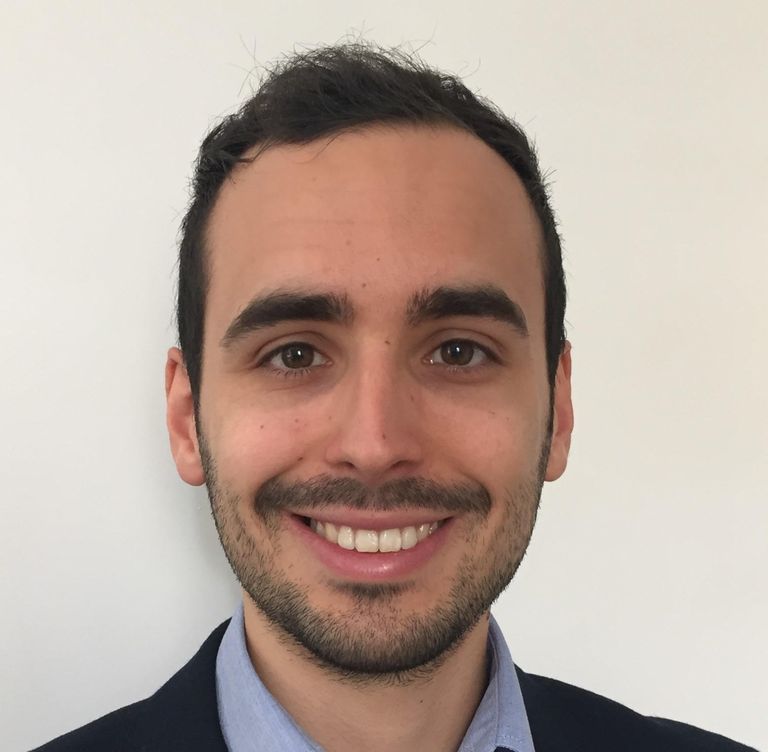
Klinikum rechts der Isar
University Hospital of the Technical University Munich
Division of Translational Gastrointestinal Immunology
Munich
E-Mail: Enric.redondo@tum.de
Project Title: Understanding the adaptation of mucosal-associated invariant T (MAIT) cells to tissues to harness their cell therapeutic potential
Mucosal-associated Innate T (MAIT) cells are highly enriched in healthy liver but depleted in hepatocellular carcinoma (HCC), which prevents them from executing their potential antitumor functions. My research aims to elucidate how MAIT cells are routed towards tissues and which factors determine their adaptation to tissue microenvironments. Understanding the factors contributing to a tissue-resident MAIT cell phenotype could lead to an improvement in their anti-cancer functions. Moreover, I am interested in establishing MAIT-based cell therapies against solid tumors by taking advantage of their innate-like tumor killing capabilities and absence of HLA restriction.
Emma Louise Morrish, PhD

Klinikum rechts der Isar der Technischen Universität München
Institut für Klinische Chemie und Pathobiochemie
Center for Translational Cancer Research (TranslaTUM)
E-Mail: emma.morrish@tum.de
Project Title: Mechanism and regulation of aberrant T-cell receptor signalling in T-NHL
Recently, somatic gain-of-function mutations in T-cell receptor (TCR) signalling pathways have been described in T-cell non-Hodgkin lymphoma (T-NHL) patients, however their pathophysiological consequences remain ill-defined. Through generation of pre-clinical murine models, my research will study how these alterations affect immune signalling and lymphoma development to determine the molecular mechanisms driving disease. This project will provide fundamental insight into the pathomechanisms driving these aggressive T-cell cancers and lead to the identification of new negative regulators of TCR signalling.
Martin Troßbach, Dr.

Technical University of Munich
Klinik und Poliklinik für Innere Medizin II
E-Mail: martin.trossbach@tum.de
Project Title: DKTK Organoid Platform; Droplet Microfluidics for PDO Culture
In Prof. Reichert’s group I am co-coordinating the establishment of the DKTK Organoid Platform with its first two use cases, NeoMatch and MetPredict. Both are prospective multicenter pilot trials: NeoMatch aims to confirm the ability of pancreatic cancer patient-derived organoids (PDOs) in forecasting response to neoadjuvant chemotherapy, and MetPredict the ability of colorectal cancer liver metastasis patient-derived organoids (CRC LM PDOs) in forecasting liver metastasis recurrence, respectively. Additionally, I am building a microfluidic workflow and aim to demonstrate its effectiveness in improving our current pipeline for generating PDOs of pancreatic ductal adenocarcinoma. Ultimately, this work will result in a better understanding of tumor heterogeneity and plasticity, as well as the interplay with the tumor microenvironment – major obstacles in successful treatment of PDAC, which to this day has a low 5-year-survival rate, despite our best efforts and recent advances. Moreover, breakthroughs relating to PDO model systems would most certainly be translatable to precision medicine applications with an even more direct impact on patients.
Bernd Uhl, Dr. med.

Department of Otorhinolaryngology - Head and Neck Surgery & Walter Brendel Centre of Experimental Medicine, University Hospital, Ludwig-Maximilians-Universität München, Munich, Germany.
E-Mail: Bernd.Uhl@med.uni-muenchen.de
Project Title: Characterization of myeloid leukocyte trafficking for novel therapeutic targets in cancer
The immune system protects the organism from infections, but also from the development of malignant tumors. Adaptive immune cells are well-known to control tumor initiation, progression, and metastasis formation in various cancer entities. During the last years, myeloid immune cells have additionally been recognized as essential players in these processes. The mechanisms underlying the trafficking of these immune cells to malignant lesions, however, remain largely unclear. Hence, the aim of our translational project is to characterize the mechanisms of myeloid leukocyte trafficking to malignant tumors to identify novel therapeutic targets for innovative immuno-oncological treatment strategies.